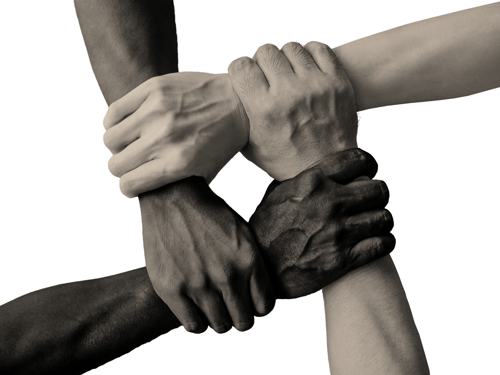One popular phrase used to describe this activity is ‘reverse mission’, but what is reverse mission, and why is it a controversial term?
Reverse mission starts with a deep sense of gratitude from those who have benefited from historical European mission activity, either in Africa, the Caribbean, Latin America or Asia. It is this sense of gratitude, combined with the understanding that Europe also has need of missionaries, that has led to missionaries being sent to the UK from across the majority world (that is, Africa, Caribbean, Asia and Latin America).
Some are sent intentionally from churches or mission agencies across these continents to be missionaries to the UK. But do people from these places who are referred to as economic migrants, or refugees, or those who’ve come to study here, also count as reverse missionaries? Yes, some of them do, because while they may have come to the UK as a refugee for example, they may at the same time have the sense that God is calling them to do mission in the UK.
One example is Pastor Girma Bishaw, who came from Ethiopia to the UK in the 1990s as a refugee, but is now engaged in mission, including organising local community festivals. Pastor Girma deeply appreciates how the UK has supported his family, and therefore loves the UK and wants to help build a multicultural Church and society here.
Another example is Pastor Kingsley Appaigyei, who came from Ghana in the 1980s to study theology, but realised after finishing his studies that God was calling him to the UK. Pastor Kingsley now leads one of the largest Baptist churches in the country, Trinity Baptist Church, which has planted many branches across London and Europe.
What are the controversies around reverse mission?
Some people have a problem with the term reverse mission, because if our understanding of God’s mission is that any Christian anywhere can be involved in mission, does the direction of mission really matter? Others think reverse mission is not really happening, because they say a Nigerian pastor leading a ‘Nigerian church’ in the UK is not engaging in reverse mission.
There are also those who think Britain does not need missionaries, as we are the ones who send missionaries to other people, not the other way round! At times there can be an unhelpful assumption that someone from a majority world country is not qualified or equipped to help British people in mission.
It is true that our understanding of God’s mission is that any Christian anywhere can participate in God’s mission – whether it’s in the streets of Lagos, Nigeria, or someone called to be an overseas missionary in India. But reverse mission does not contradict this – it is just one expression of God’s mission, without claiming to be the sum-total.
What reverse missionaries are simply saying is:
we who used to receive before now feel we are matured enough to give.And surely this is a good thing!
It is also true that there are Nigerian pastors leading ‘Nigerian churches’ in the UK, or Brazilian pastors leading ‘Brazilian churches’ (although many of these churches are in fact multicultural, with people from different tribes and nations attending, possibly from the same continent).
But what is often missing in these conversations are other examples, where a Nigerian pastor is leading a multicultural or white majority church (that is a church full of mostly white people). To illustrate, Pastor Andrew Junaid leads Brook Lane Community Church, a white majority church in south east London, and Pastor Tani Omideyi leads a multicultural church Temple of Praise in Liverpool, which has many local Liverpudlian members. And I’ve personally had the opportunity to lead both multicultural churches and a white majority church.
There are also Christians from the majority world working in Christian agencies and institutions founded by western Christians. Dotha Blackwood trains ministers at Spurgeon’s College, while Joel Edwards advocates for the poor and marginalised at Christian Solidarity Worldwide (CSW).
Are reverse missionaries welcome in Britain?
The idea that Britain does not need missionaries is ridiculous, because the need is obvious. We only have to look at how many people are not Christians, the number of churches who’ve declined in the last 40 years, and how our values as a society have changed. Besides, if Britain is a multicultural multi-ethnic society, then it’s important that the Church that’s reaching that society is also multicultural and multi-ethnic.
There are UK churches that have invited and welcomed reverse missionaries. Many national bodies are also recognising the contribution of Christians from the majority world, such as the Evangelical Alliance and their One People Commission. But while I’ve personally been welcomed, I’m also aware that there are cases where reverse missionaries have not been accepted or valued.
There are ongoing conversations to better understand reverse missionaries. The Centre for Missionaries from the Majority World, which I run with five friends from across the majority world, was started to help facilitate such conversations, so that we can all work together for God’s kingdom.
After all, we all need each other!




